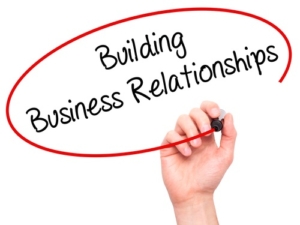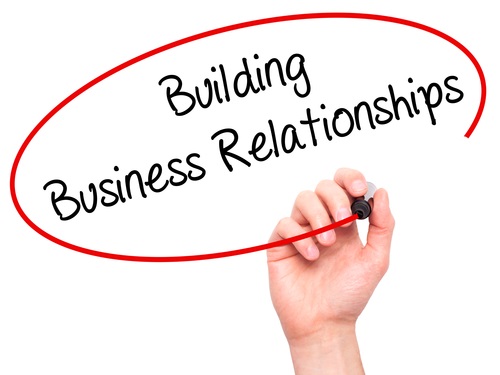
When you hear the term “Business is Business” what do you think of? According to the Macmillan Dictionary “business is business” spoken used to say that profit is the most important thing to consider and “we can’t afford to employ someone who isn’t good at the job.” Webster dictionary states, “Business is Business” means that in order for a business to be successful it is necessary to do things that may hurt or upset people, such as “I’m sorry I have to let you go, but understand that business is business.”
As a business owner, I agree it’s necessary to make a profit, but are you always taking into account those that have helped you along the way – for instance vendors. There’s a fine line between being complacent and forgetting the service you received from a vendor during lean times as things turn around and business is booming.
Let me give you two examples of ‘Business is Business’ a salesman recently shared with me.
- A Bible Camp brought in a young Director of Operations in 2018. For many years, during the history of working with the camp, this food vendor and salesman helped keep the camp open during lean times by extending credit, donating food, providing guidance in menu selection and by working with his food suppliers to offer sales on various products. In other words, the salesman serviced the Bible Camp. When items were missed by the Bible Camp when placing a food order, the salesman took calls after work. He also delivered product himself that was missed being loaded on the delivery truck order so the camp didn’t run short on food. The chef he worked with for years was heartbroken, because he knew from prior experience other salespeople from another food company wouldn’t service him as he had been served. The Director of Operations could only see the bottom line and didn’t take into account the affect this would have on the quality of food they served the campers nor the service he received from the salesman. It didn’t matter the company had stood by this camp during difficult times. The only important thing was to buy cheaper and serve a lesser quality of food and his statement to the salesperson was, “Business is Business.” After all…he wasn’t the chef preparing the food – his only thought was making a profit.
- A second occurrence this salesman encountered was with a new restaurant owner. This particular person had never owned a restaurant and the salesman sat with him for hours reviewing menus, helping with operations guidance and suggestions for food specials. After a number of months, business was going great and long forgotten was the time spent teaching this restaurant owner how to run a restaurant. I would say this goes above and beyond customer service. The owner then decided to shop around for a low-quality product and began switching some of his order to another food vendor. Again, long forgotten were the hours of time spent teaching him how to run the restaurant. The restaurant manager who placed weekly food orders was so upset, he refused to give the salesperson their food order and told the restaurant owner he would have to look the salesperson in the eye to tell him he was using other vendors. The owner’s response to the salesperson was “Business is Business.” When the owner was asked by the salesperson what the phrase meant, the owner couldn’t answer him. The following week when the salesperson went in for the order – it was left on the owner’s desk as he chose not to tell the salesperson what his meaning of “Business is Business” was. In the weeks that followed, the competitor has begun raising prices on numerous items and the business is coming back to the salesperson.
As a business owner, we want to create “LOYAL” customers. The cheapest way is not always the best way and you find out all too late, the service you took for granted isn’t always there. As you switch to something with lesser quality, you may find out your clientele will know the difference and decide “Business is Business” as well and take their dollars elsewhere. So my question is… “Are you “Loyal” to those who have helped you along the way, or doesn’t that mean anything in today’s business market?”
About the author: Autumn Edmiston is the CEO and owner of the Edmiston Group. The Edmiston Group is a multifaceted Pittsburgh based marketing consulting firm providing senior level marketing management services to businesses and non-profit organizations on a short or long-term basis. Core areas of service are business development, marketing, strategic planning and public relations. The Edmiston Group has consistently delivered and implemented real-world, proven business marketing ideas and strategies for business.


